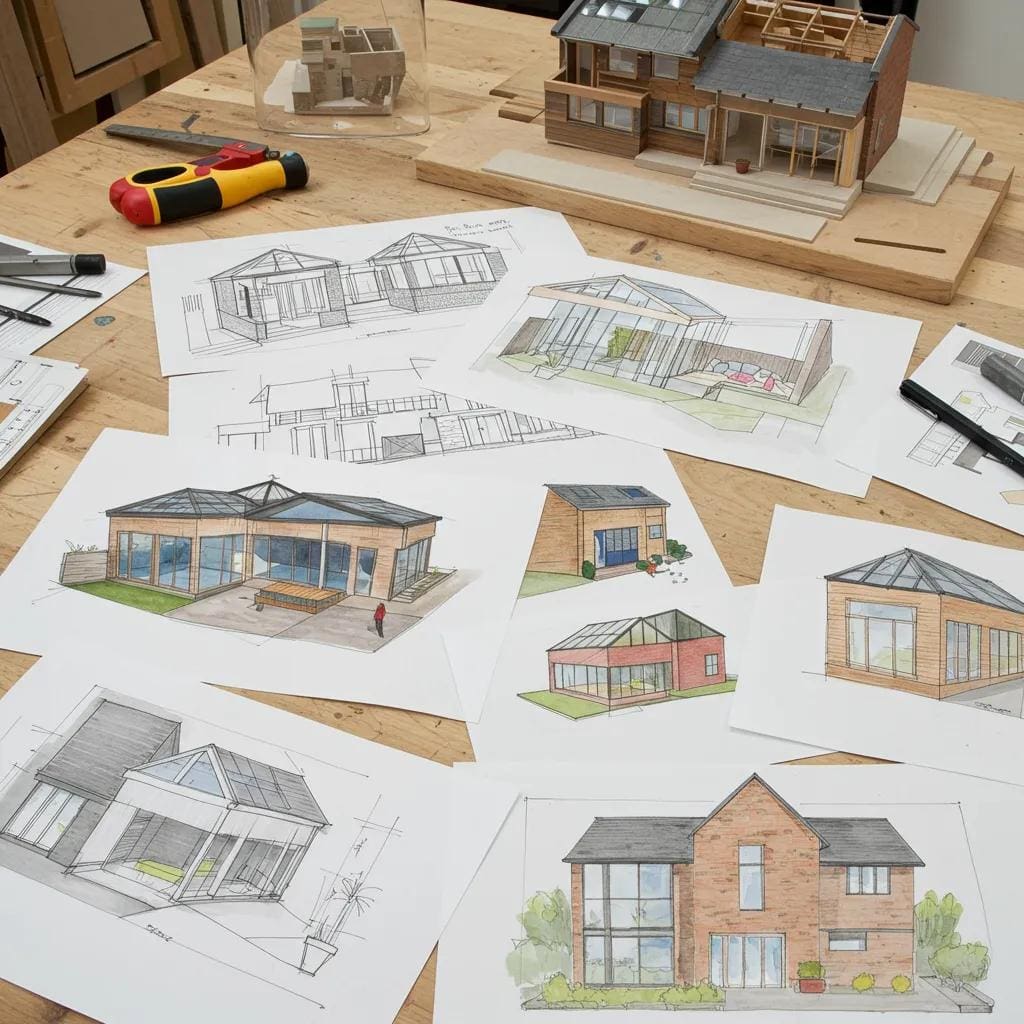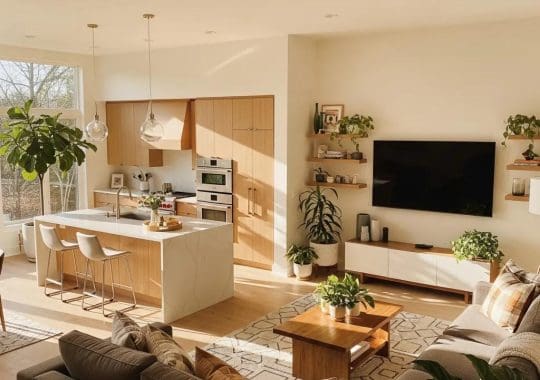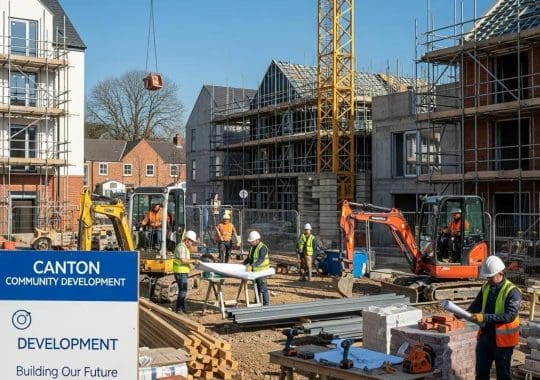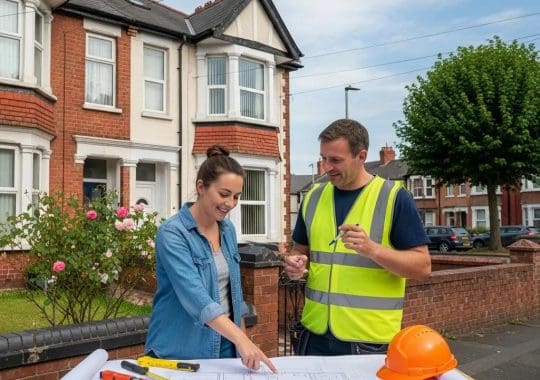Two-Storey Extensions in Cardiff: Your Essential Guide to Costs, Planning, Design, Builders, and Property Value
Cardiff homeowners embarking on a two-storey extension project can anticipate an investment typically ranging from £55,000 to £95,000, with the potential to boost their property’s value by up to 12 percent. Navigating the complexities of budget planning, planning regulations, and design choices can seem daunting. However, a clear understanding of costs, necessary permissions, architectural possibilities, builder selection, and the projected return on investment will pave the way for a smooth and successful project.
By meticulously planning each stage, from initial budgeting to final builder selection, you’ll gain the confidence to manage every facet of your home’s expansion, supported by local expertise and the latest regulatory information. If you’re still deciding between different ways to add space, start with our main guide to home extensions for a clear overview of the options.
How Much Does a Two-Storey Extension Cost in Cardiff?
The cost of a two-storey extension encompasses all expenses related to design, foundational work, structural construction, and finishing touches, significantly influenced by the project’s scale, chosen materials, and overall complexity. For most projects in Cardiff, expect costs to fall between £1,200 and £2,200 per square metre. This range allows for flexible options, from basic structural shells to highly customised architectural statements. Developing an accurate budget is crucial for comparing quotes from reputable construction firms and ensuring transparent expenditure on materials, labour, professional fees, and a necessary contingency fund.
What Factors Influence the Cost of Two-Storey Extensions in Cardiff?
The final price tag for a two-storey extension is shaped by several interconnected factors:
- The size and overall floor area dictate the quantity of materials and the structural engineering required.
- Material choices can range from standard brick and blockwork to premium cladding or advanced glazing systems.
- Complex designs, such as curved walls, intricate roof structures, or bespoke joinery, will necessitate specialist labour and potentially higher costs.
- Site-specific conditions, including ground stability, drainage requirements, and site access, can introduce additional costs for foundations and scaffolding.
- Professional services from architects, structural engineers, and project managers typically represent 10–15 percent of the total project budget.
What Is the Average Cost Per Square Metre for Extensions in Cardiff?
Here’s an indicative breakdown of average costs per square metre for two-storey extensions in Cardiff, based on recent market data (October 2025):
| Specification | Cost per m² (£) | Details |
|---|---|---|
| Basic brick shell | 1,200 – 1,500 | External walls, basic roof structure, simple window installations |
| Standard finish | 1,600 – 1,900 | Includes insulation, plastering, double-glazed windows, basic electrical and plumbing systems |
| Premium specification | 2,000 – 2,200 | Features high-end glazing, custom joinery, underfloor heating, and advanced insulation |
How Can You Budget and Finance Your Two-Storey Extension?

Consider these financing options for your extension:
- Remortgaging: Leverage your home’s equity with competitive mortgage rates.
- Home improvement loans: Secure fixed repayment terms without altering your current mortgage.
- Personal savings: Ideal for smaller projects to avoid interest charges.
- Home efficiency support: If your project includes insulation upgrades or better glazing, you may be eligible for certain schemes depending on your circumstances.
What Are the Hidden Costs to Consider in Your Extension Project?
Beyond the primary construction expenses, be prepared for these additional costs:
- Planning application fees: Required for full planning permission or a certificate of lawfulness.
- Building control charges: Fees for mandatory inspections and compliance certification.
- Party wall awards: If your extension is adjacent to a neighbouring property, you may need to cover costs associated with a party wall agreement.
- Site preparation costs: This can include essential surveys for drainage, trees, and any ground remediation.
- Contingency fund: Allocate 10–15 percent of your budget to cover unexpected issues.
If you’re comparing project routes, it can help to understand the differences between more modest builds and larger additions — here’s a practical guide to single-storey extension planning requirements (useful for context when weighing up scope and approvals).
Do You Need Planning Permission for a Two-Storey Extension in Cardiff?
Generally, two-storey extensions require full planning permission unless your project falls strictly within the limits of permitted development (where applicable). Extensions that exceed height/depth rules, materially impact neighbours, alter the roof form, or sit within restricted areas will almost always need consent.
For a simple explanation of when permission is needed, see our guide to planning permission for extensions.
When Is Full Planning Permission Required for Double Storey Extensions in Cardiff?
Full planning consent is typically required if your extension:
- Extends beyond standard rear projection limits for your property type.
- Exceeds typical overall height thresholds for household development.
- Involves raising ridge height or materially altering the roof structure.
- Is affected by local restrictions such as conservation controls or equivalent planning constraints.
It’s also worth checking whether your proposal sits inside (or outside) what’s permitted before you pay for full drawings — this guide on permitted development rights gives a clear starting point.
How Does the Planning Process Work?
A typical planning route includes:
- Pre-application thought: basic feasibility, neighbour impacts, and a rough massing sketch.
- Submission: drawings and supporting documents.
- Consultation: neighbours can comment; planners may request clarifications.
- Decision: straightforward cases are often decided within the standard determination period.
If you’d rather have the process handled end-to-end, this explains exactly how we run the planning application process for homeowners.
What Are the Key Building Regulations for Two-Storey Extensions?
Building regulations cover:
- Structure: foundations, beams, load paths, and stability.
- Thermal performance: insulation and glazing performance.
- Fire safety: escape routes, fire separation, and alarms.
- Drainage and ventilation: correct connections and airflow to manage moisture.
What Are the Best Two-Storey Extension Design Ideas for Cardiff Homes?

An effective two-storey extension balances flow, daylight, and external proportions. Common wins include:
- Keeping upstairs aligned with the ground floor footprint for cleaner structure and lower cost.
- Designing the new stair/landing position early to avoid awkward circulation.
- Placing bathrooms above/beside existing services to reduce plumbing runs.
- Using rooflights strategically to brighten the centre of deeper plans.
When Should You Hire an Architect for Your Two-Storey Extension?
Two-storey projects benefit from professional design because they affect structure, layout, and planning impacts more than most single-storey builds. An architect can also help you avoid expensive redesigns by checking feasibility and neighbour impacts early.
If your main driver is extra bedrooms (or reworking the flow upstairs), it’s also worth reading our broader guide on two-storey extension considerations to sense-check layout and scope.
How Do You Choose the Best Builders for Two-Storey Extensions?
Selecting the right contractor is crucial. Look for:
- Relevant experience with two-storey extensions (not just refurbishments).
- Clear quotes with a defined scope, inclusions, and allowances.
- Programme and site plan explaining how they’ll keep the home liveable/safe.
- Insurance and a sensible payment schedule tied to milestones.
It also helps to understand what a good brief looks like before you request quotes — this article on what to expect when hiring architectural services explains the typical stages and deliverables.
What Are the Typical Construction Timelines for Double Storey Extensions?
A realistic build window is often 14–20 weeks for construction, with total project time (design + permissions + build + sign-off) commonly landing in the 6–9 month range, depending on complexity and approvals.
How Much Value Does a Two-Storey Extension Add?
A well-designed, well-finished extension can add value — especially where it adds bedrooms and improves layout. To maximise return:
- Prioritise “useable” space (bedrooms, bathrooms, storage) over awkward oversized rooms.
- Keep the external design proportionate to the existing house.
- Document everything (planning decision, Building Control sign-off, warranties, certificates).
Common Questions
Do You Need a Party Wall Agreement?
If you’re building on/near a boundary or working on a shared wall/structure, you may need a party wall process — handle it early to avoid delays.
What Is the 45-Degree Rule?
If you reference this, keep it as a “common guideline” rather than a hard rule, and avoid overpromising outcomes — it’s often used as a daylight/overshadowing sense-check.
Next Steps
If you’re planning a two-storey extension and want the design and permission handled end-to-end, we can help. Start by reviewing options with our team of architecture firms in Cardiff, then get in touch to book a feasibility chat.




